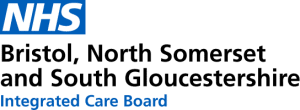Bite-size patient-centred exercise and education videos for people with stroke from Asian backgrounds (Indian, Pakistani and Bangladeshi)
Funding
NHS Bristol, North Somerset and South Gloucestershire CCG Research Capability Funding (Local development)
What is the research question?
What is the acceptability and feasibility of providing bite-size patient-centred exercise and education videos to people with stroke from Asian backgrounds (Indian, Pakistani and Bangladeshi), that are co-designed for self-management to improve physical activity and functional independence?
What is the problem?
Exercise after a stroke can improve heart and lung function, the ability to walk, arm strength and prevent further stroke.
Moderately intense physical activity (about 60–75 min/day) is recommended to improve functional independence.
However, after discharge from the hospital, 3 out of 4 stroke survivors become sedentary, and 1 in 4 have difficulty taking part in social activities.
People from Black, Asian and minority ethnic (BAME) communities have an increased risk of stroke.
According to the latest census of April 2021, 14% of the UK population is from a minority ethnic background which is predicted to increase.
In Bristol, the BAME community make up 16% of the total population. However, engagement with rehabilitation programmes is low in these groups.
We have been delivering group exercise classes for 6 years for people with stroke in collaboration with the charity Bristol After Stroke (BAS). Out of 140 attendees, only 5 participants were from the BAME community.
Language and culture play a huge role in patient access, patient journey and continuity of care. Therefore, it is not surprising that language barriers have been reported as the dominant factor affecting access to healthcare for those from minority ethnic communities.
To help stroke survivors from these communities, we need exercise advice and information in an accessible format.
What is the aim of the research?
We have already co-developed, with our patient partners, short (15-minute) bite-size exercise/education videos, which they suggest will help people join in with and keep engaged in physical activity.
Our videos were novel because they showed:
- real patients doing the exercises under the guidance of an experienced physiotherapist
- a range of exercises addressing the needs of patients with mild, moderate and severe stroke.
In this project, we aim to co-develop additional videos showing real patients in different languages for people from the Asian community (Indian, Pakistani, and Bangladeshi) who speak different languages (i.e. Hindi, Urdu, Punjabi and Gujrati).
This will help patients from these communities to exercise and improve their movement and function. This development work will inform our future feasibility trial that aims to test whether it is feasible to run a large trial.
How will this be achieved?
There will be a systematic review of current evidence for using video-based interventions.
Qualitative interviews with patients/caregivers from the Asian community and clinicians from the Bristol, North Somerset and South Gloucestershire area will then be conducted regarding the content and design of the exercise and educational videos.
For this purpose, our existing videos in English will be shared with the participants.
Our patient group will include a range of patients based on age, gender, disability (mild, moderate and severe stroke) and ethnicity (Indian, Pakistani, and Bangladeshi who speak various languages; Hindi, Urdu, Punjabi and Gujrati).
Evidence from the review and the interview information will be used to draw up storyboards for how the videos look.
We will convene co-design groups with patients, family members and HCPs to re-design the storyboards and inform the videos we produce.
Who is leading the research?
Dr Praveen Kumar, Senior Lecturer in Physiotherapy, School of Health and Social Wellbeing, University of the West of England, Bristol.
Further information
For more information or to get involved in this project, email bnssg.research@nhs.net.

